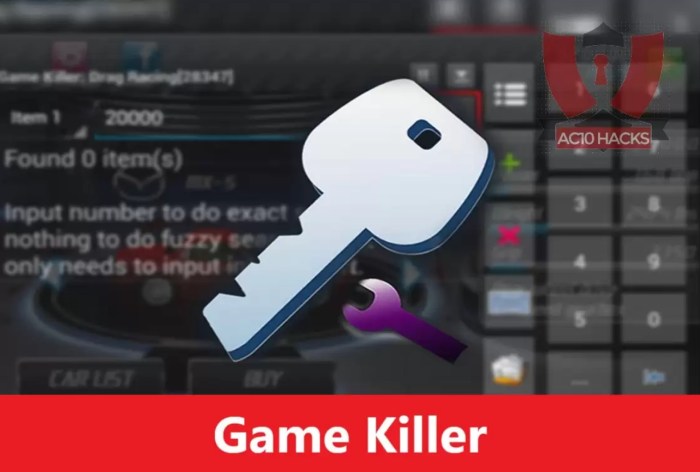
Ever wondered about the shadowy world of online game cheats? It’s a world filled with cunning programmers, frustrated gamers, and epic battles between clever cheats and even cleverer anti-cheat systems. From simple aimbots to complex exploits that rewrite game code, the variety is staggering. This exploration dives into the creation, detection, and impact of cheats, examining the motivations of cheaters, the legal ramifications, and the ongoing arms race between developers and those seeking an unfair advantage.
Get ready for a thrilling ride!
We’ll uncover the technical wizardry behind cheat development, explore the ethical dilemmas faced by players and developers alike, and analyze how cheating affects game design, development costs, and ultimately, the enjoyment of millions of players. We’ll even touch on the surprisingly diverse world of online gaming, from massive multiplayer online role-playing games (MMORPGs) to the fast-paced action of first-person shooters (FPS).
The Prevalence of Online Game Cheats
The pervasive nature of online gaming has unfortunately created a breeding ground for cheating. From subtle advantages to blatant exploits, the use of cheats significantly impacts the fairness and enjoyment of online games for countless players. Understanding the types of cheats, their consequences, and the motivations behind their use is crucial to addressing this ongoing issue.
Types of Online Game Cheats
Online game cheats range from simple modifications to sophisticated software. They exploit vulnerabilities in game code or circumvent intended gameplay mechanics to provide unfair advantages. These cheats can drastically alter the competitive landscape, creating an uneven playing field for legitimate players.
Impact of Cheating on Legitimate Players
The presence of cheaters significantly diminishes the enjoyment and competitive integrity of online games. Legitimate players often feel frustrated, demoralized, and cheated out of fair competition when facing opponents who employ unfair tactics. This can lead to decreased player engagement, game abandonment, and a negative overall gaming experience. The feeling of unfairness undermines the core principles of skill-based competition and sportsmanship that many players value.
Motivations Behind Cheating in Online Games
Players resort to cheating for a variety of reasons, often stemming from a desire for an enhanced gaming experience, albeit an unfair one. Some players cheat to compensate for perceived skill deficiencies, seeking an easy path to victory or higher rankings. Others might cheat for the thrill of exploiting the game system or simply to disrupt the gameplay for others.
The desire for immediate gratification and a competitive edge can also drive players to use cheats, regardless of the ethical implications.
Comparison of Cheat Types, Impact, and Motivations
| Cheat Type | Impact on Legitimate Players | Player Motivation | Examples | Potential Consequences |
|---|---|---|---|---|
| Aimbots (automatic aiming) | Makes fair competition impossible; creates frustration and anger. | Desire for easy kills and high kill-death ratio; lack of skill. | Automatic target locking in first-person shooters. | Account bans, game suspensions, community ostracization. |
| Wallhacks (seeing through walls) | Eliminates strategic gameplay; provides unfair tactical advantage. | Desire for surprise attacks and positional advantage. | Seeing enemy locations through obstacles in games like PUBG or Fortnite. | Account bans, game suspensions, community ostracization. |
| Speed Hacks | Unfair movement speed advantage; ruins competitive balance. | Desire for faster traversal, escaping combat, or reaching objectives quickly. | Moving significantly faster than intended in racing or MMO games. | Account bans, game suspensions, community ostracization. |
| Botting (automated gameplay) | Inflates player statistics; diminishes the value of achievement. | Desire for automatic progress and resource gathering, often for profit. | Automated character control in MMOs for farming resources or leveling up. | Account bans, game suspensions, legal repercussions (in some cases). |
| ESP (Extra Sensory Perception) | Provides complete awareness of enemy locations and status. | Desire for superior knowledge and tactical advantage. | Displays enemy health, location, and equipment through walls in various games. | Account bans, game suspensions, community ostracization. |
The Development and Detection of Cheats
The world of online gaming is a constant arms race between cheat developers, ever-seeking an edge, and game developers, striving to maintain a fair and balanced playing field. Understanding the techniques used on both sides is crucial to appreciating the complexities of this ongoing battle. This section delves into the technical aspects of cheat creation and the countermeasures employed to combat them.
Creating cheats often involves exploiting vulnerabilities within a game’s code or network communication. This can range from simple modifications to game files to complex, real-time manipulations of game data. The methods used are as diverse as the games themselves, but some common approaches include memory manipulation, packet manipulation, and the use of third-party software.
Methods of Cheat Development
Memory manipulation involves directly altering a game’s RAM to change values like health, ammunition, or player location. This often requires specialized software that can read and write to the game’s memory space. For example, a cheat might alter a player’s health value from 100 to 9999, granting virtual invincibility. Packet manipulation involves intercepting and modifying the data packets exchanged between the game client and the server.
This allows cheaters to, for instance, alter their position on the server, teleporting across the map or making themselves invisible. Third-party programs, often incorporating both of these methods, provide a user-friendly interface to execute these manipulations, making cheating accessible even to those without extensive programming knowledge. These programs frequently employ reverse engineering techniques to identify and exploit game vulnerabilities.
Anti-Cheat Mechanisms
Game developers employ a variety of anti-cheat mechanisms to detect and prevent cheating. These mechanisms range from simple checks for modified game files to sophisticated behavioral analysis systems. Common techniques include checksum verification, which compares the game files against known good versions; signature-based detection, which identifies known cheat programs; and behavioral analysis, which monitors player actions for anomalies indicative of cheating.
For example, a player consistently moving at impossible speeds or dealing unrealistic amounts of damage might trigger an alert.
Comparison of Anti-Cheat Technologies
Different anti-cheat technologies have varying strengths and weaknesses. Signature-based detection is effective against known cheats but struggles with new or modified cheats. Behavioral analysis is more adaptable, detecting unusual patterns regardless of the specific cheat used, but can generate false positives, penalizing legitimate players for unusual but legal gameplay. Checksum verification is a relatively simple but effective method for detecting file tampering, but it can be circumvented by more sophisticated cheats that modify the game’s memory without altering the files themselves.
A robust anti-cheat system often incorporates a combination of these techniques for maximum effectiveness.
Evolution of Cheat Detection Techniques
The evolution of cheat detection techniques has mirrored the evolution of cheating itself, a continuous cycle of innovation and counter-innovation.
The following list details some key advancements:
- Early methods (pre-2000s): Primarily relied on simple checksums and basic file integrity checks.
- Mid-2000s: Introduction of more sophisticated signature-based detection and rudimentary behavioral analysis.
- Late 2000s – Present: Increased use of machine learning and AI for advanced behavioral analysis, kernel-level anti-cheat drivers to prevent memory manipulation, and sophisticated network monitoring to detect packet manipulation. The rise of anti-cheat services provided by third-party companies like BattlEye and Easy Anti-Cheat.
The Legal and Ethical Implications of Cheating
The digital world, while offering boundless entertainment, presents unique challenges to established norms of fairness and legality. Online game cheating, a pervasive issue, blurs the lines between playful competition and criminal activity, raising complex legal and ethical questions for both developers and players. Understanding these implications is crucial for fostering a healthy and sustainable online gaming ecosystem.
Legal Ramifications for Cheat Creators and Distributors
Creating and distributing cheats for online games carries significant legal risks. Depending on the jurisdiction and the specific terms of service of the game, developers and distributors of cheats can face various legal actions. These include copyright infringement, if the cheat accesses or modifies the game’s code without authorization. Furthermore, the distribution of cheats can be prosecuted under laws related to fraud, if the cheat gives an unfair advantage and causes financial harm to other players or the game developer (e.g., through lost revenue from in-app purchases).
In some cases, particularly if the cheat involves accessing or modifying game servers without authorization, charges of computer hacking or unauthorized access could be filed. The penalties for these offenses can range from hefty fines to imprisonment, highlighting the seriousness of the legal ramifications.
Ethical Considerations Surrounding Online Game Cheating
The ethical implications of cheating in online games are multifaceted. At its core, cheating undermines the spirit of fair play and competition. It disrupts the balance of the game, creating an unfair advantage for cheaters and potentially ruining the experience for other players. This can lead to frustration, anger, and a sense of injustice among those who play by the rules.
Moreover, cheating can damage the reputation of the game and the community surrounding it, deterring new players and driving away existing ones. The ethical implications extend beyond the immediate players, impacting the overall integrity and sustainability of the online gaming environment.
Ethical Implications Across Game Genres
The ethical weight of cheating differs significantly across game genres. In competitive games, such as esports, cheating is particularly egregious. It not only undermines the integrity of the competition but can also have significant financial implications for players, teams, and organizers. In contrast, the ethical implications of cheating in casual games may be perceived as less severe. However, even in casual games, cheating can still create an unfair advantage, disrupt the enjoyment of other players, and erode the overall sense of community.
The context of the game – competitive or casual – influences the perceived severity of the act, though the underlying principle of fairness remains constant.
Hypothetical Scenario: The “God Mode” Cheat in a MMORPG
Imagine a massively multiplayer online role-playing game (MMORPG) where a cheat called “God Mode” grants the user invincibility and unlimited resources. A player, “ShadowWalker,” discovers and uses this cheat, quickly becoming the most powerful player in the server. ShadowWalker amasses wealth, dominates the game’s economy, and ruins the experience for other players who struggle to compete. The ethical implications are significant: ShadowWalker violates the game’s terms of service, undermines the game’s intended balance, and actively harms other players’ enjoyment.
This scenario demonstrates how even a seemingly harmless “fun” cheat can have devastating consequences for the overall gaming environment. The act not only violates the spirit of fair play but also displays a disregard for the community and the developer’s vision. While the player might justify the actions by claiming it’s just a game, the impact on others cannot be overlooked.
This scenario highlights the importance of considering the broader consequences of one’s actions within a shared online space.
The Impact of Cheating on Online Game Development

The prevalence of cheating in online games isn’t just a nuisance for players; it significantly impacts the very design and development of these games. Developers are forced to constantly adapt, investing resources and time to combat cheating, which directly affects their budgets, deadlines, and ultimately, the gaming experience for honest players. This constant arms race between cheat developers and game developers shapes the industry in profound ways.The relentless pursuit of cheat prevention significantly alters design choices.
Developers must consider the potential for exploits at every stage of development, from initial game mechanics to the underlying code. This requires a substantial increase in testing and debugging, as even seemingly minor flaws can be leveraged by cheaters.
Design Choices Influenced by Cheating
The need to prevent cheating often leads to less elegant or less flexible game designs. For example, developers might simplify game mechanics to reduce the number of potential vulnerabilities. Features that are difficult to implement securely might be cut altogether, limiting the potential for innovation and player agency. The focus shifts from creating the most engaging and exciting experience to creating a secure one, a trade-off that can negatively impact the overall quality of the game.
Consider the simplified loot systems in some massively multiplayer online role-playing games (MMORPGs) – a direct consequence of efforts to curb botting and gold farming.
The Cost and Time Impact of Cheat Detection
Implementing robust anti-cheat measures adds significant costs and extends development timelines. Dedicated teams of engineers and security experts are needed to design, implement, and maintain these systems. This requires substantial investment in specialized software, hardware, and ongoing updates to counter the ever-evolving tactics of cheaters. For example, the development of sophisticated anti-cheat systems like BattlEye or Easy Anti-Cheat represents a considerable ongoing expense for game studios.
The constant updates and patches required to address new exploits further contribute to the extended development cycles and increased costs.
Games Significantly Impacted by Cheating
Several high-profile games have suffered greatly from widespread cheating. Counter-Strike: Global Offensive (CS:GO), for instance, has faced persistent issues with aimbots and wallhacks, requiring constant updates to its anti-cheat system. This ongoing battle has consumed significant development resources and impacted the overall player experience. Similarly, World of Warcraft, throughout its history, has battled gold farmers and botters, leading to changes in the game’s economy and the implementation of various anti-botting measures.
These measures, while effective to some degree, often come at the cost of player convenience or desired game features.
Strategies for Mitigating the Negative Impact of Cheating
Game developers employ a variety of strategies to mitigate the impact of cheating. These include implementing robust anti-cheat software, utilizing server-side validation to prevent client-side manipulation, and designing game mechanics that are inherently more resistant to cheating. Proactive measures like regular security audits and employing skilled security professionals are also critical. Furthermore, actively engaging with the community, gathering feedback on potential exploits, and swiftly addressing identified issues helps to create a more secure and fair gaming environment.
Transparency with the community about anti-cheat efforts can also foster trust and reduce player frustration.
Online Game Development
The creation of engaging and successful online games requires a deep understanding of different genres and the unique challenges each presents. From the sprawling worlds of MMORPGs to the fast-paced action of FPS games, the development process varies significantly, impacting design choices, technological requirements, and the overall player experience. This section explores the distinct development processes across several popular online game genres, highlighting the unique challenges and showcasing examples of successful titles.
Different Game Genres and Their Development Processes
The development of online games is a multifaceted process that differs greatly depending on the chosen genre. Key considerations include game mechanics, technology, monetization strategies, and community management. The following table compares and contrasts the development processes for four prominent genres: MMORPGs, MOBAs, FPS, and Battle Royales.
| Genre | Development Process | Unique Challenges | Successful Example & Design Choices |
|---|---|---|---|
| MMORPG (Massively Multiplayer Online Role-Playing Game) | Requires extensive world-building, complex character systems, robust server infrastructure, and ongoing content updates. Development cycles are typically long and iterative, with significant emphasis on community engagement. | Maintaining a persistent world with thousands of concurrent players, balancing gameplay for diverse player skill levels, preventing exploits and maintaining game balance, and managing a large and active player community. | World of Warcraft: Success built on a rich lore, engaging quest lines, a compelling raiding system, and regular content updates that kept players invested for years. The design choice of a subscription model provided a stable revenue stream allowing for continuous development. |
| MOBA (Multiplayer Online Battle Arena) | Focuses on balancing a relatively small number of characters (heroes) with distinct abilities, creating a competitive and fair environment, and designing compelling maps that encourage strategic play. Iteration and balancing are crucial. | Achieving a balanced gameplay experience where no single hero or strategy dominates, managing a competitive scene, and constantly updating the game to prevent stagnation. | League of Legends: Its success stems from a deep character roster with unique abilities, a well-designed map that promotes strategic team play, and a thriving competitive scene fueled by regular tournaments and updates. The free-to-play model with cosmetic purchases proved highly successful. |
| FPS (First-Person Shooter) | Emphasis on realistic or stylized graphics, responsive controls, and engaging multiplayer modes. Netcode is critical for smooth online play, requiring significant optimization. | Creating balanced weaponry and maps, minimizing lag and ensuring fair play, and fostering a positive community to combat toxic behavior. Innovation in gameplay mechanics is crucial to maintain player interest. | Counter-Strike: Global Offensive (CS:GO): Its longevity is attributed to its core gameplay loop, competitive balance, and a strong emphasis on skill. The map design encourages tactical gameplay and strategic thinking, while regular updates introduce new content and maintain balance. |
| Battle Royale | Focuses on large-scale player interaction within a shrinking play area, requiring efficient server technology to handle numerous players concurrently. Emphasis on loot mechanics, strategic positioning, and fast-paced combat. | Balancing the tension between fast-paced action and strategic decision-making, preventing exploits, and ensuring fair matchmaking. Maintaining a high level of player engagement in a genre with short matches is key. | Fortnite: Its success can be attributed to its building mechanics, diverse cosmetic items, and a constant stream of updates and events. The free-to-play model and cross-platform play expanded its reach significantly. The design choice to be accessible to a wide audience contributed to its massive popularity. |
Free Online Games and Their Monetization Strategies
The seemingly paradoxical world of free-to-play (F2P) online games thrives on a diverse range of monetization strategies. These games, often downloaded at no upfront cost, generate substantial revenue through cleverly implemented systems that encourage players to spend money. Understanding these strategies is key to grasping the economic engine behind the massive success of the F2P gaming market.
Monetization Strategies in Free-to-Play Games
Free-to-play games employ a variety of monetization models, often in combination. These strategies aim to extract revenue from a large player base without requiring an initial purchase. The success of each model depends heavily on the game’s design, target audience, and overall player experience. A poorly implemented monetization strategy can drive players away, while a well-designed one can foster a thriving and profitable ecosystem.
Advantages and Disadvantages of Different Monetization Models
Different monetization models offer unique advantages and disadvantages. For example, microtransactions, while potentially highly profitable, can alienate players if perceived as exploitative. Subscription models offer predictable revenue but might limit the player base. A balanced approach often proves most effective. The optimal strategy frequently involves a hybrid model, combining several approaches to maximize revenue while maintaining player satisfaction.
Revenue Models of Successful Free-to-Play Games
Several successful free-to-play games demonstrate the effectiveness of different monetization strategies. Consider
- Candy Crush Saga*, which relies heavily on a freemium model with in-app purchases to continue gameplay after running out of lives. In contrast,
- Fortnite* uses a battle pass system and cosmetic item sales, creating a sense of progression and personalization without impacting gameplay balance.
- League of Legends*, another highly successful example, utilizes a similar model, focusing on cosmetic items and champion unlocks. These games show the diverse paths to success within the F2P market.
Best Practices for Designing a Sustainable Monetization Strategy
Designing a sustainable monetization strategy for a free-to-play game requires careful consideration of several key factors. A poorly designed system can quickly alienate players and harm the game’s long-term success. Here are some best practices:
- Transparency and Fairness: Clearly communicate all in-app purchases and avoid manipulative tactics. Players are more likely to spend money if they feel they are receiving fair value.
- Value-Added Purchases: Offer cosmetic items, convenience features, or time-saving boosts, rather than pay-to-win mechanics. This ensures a fair and enjoyable experience for all players.
- Regular Content Updates: Keep players engaged with regular updates, new content, and events. This increases the game’s longevity and encourages continued spending.
- Community Engagement: Foster a positive and engaged community. Players are more likely to support a game they enjoy and feel connected to.
- A/B Testing: Continuously test and refine monetization strategies based on player data. This allows for optimization and adaptation to changing player behavior.
- Balanced Gameplay: Ensure that the game remains enjoyable and challenging for all players, regardless of spending habits. Avoid pay-to-win mechanics which create an unfair playing field.
Online Games for Girls
The gaming landscape is evolving, and understanding the specific preferences and needs of female gamers is crucial for creating successful and inclusive online experiences. While the industry has historically catered more towards male audiences, a significant and growing female player base demands games that resonate with their interests and values. This section will explore the key characteristics that attract girls to online games, delve into the design considerations unique to this demographic, and showcase successful examples.
Key Characteristics of Online Games Appealing to Girls
Research consistently shows that girls are drawn to online games that offer opportunities for social interaction, creativity, and storytelling. Games that emphasize collaboration, character customization, and emotionally resonant narratives often prove more appealing than those focused solely on competition and violence. Furthermore, a positive and supportive online environment is paramount for fostering engagement and retention among female players.
Design Considerations for Games Targeting Female Audiences
Creating engaging games for girls requires careful consideration of several design elements. Aesthetics play a crucial role; visually appealing graphics, vibrant colors, and charming character designs are often preferred. Gameplay mechanics should be intuitive and easy to learn, avoiding overly complex or frustrating challenges. The focus should be on rewarding creativity and collaboration rather than solely emphasizing competition.
Story-driven narratives with relatable characters and emotionally engaging storylines are highly effective. Finally, fostering a safe and inclusive online environment free from harassment and toxicity is essential for attracting and retaining a female player base.
Examples of Successful Online Games Designed for Girls
Several successful online games demonstrate the principles Artikeld above. Games like
- Animal Crossing*, with its emphasis on community building, customization, and charming aesthetics, have proven immensely popular among female players. Similarly, games like
- Star Stable Online*, which combines horse riding with social interaction and narrative elements, have cultivated a large and dedicated female following. These games demonstrate the effectiveness of incorporating social elements, engaging narratives, and positive community building into the core gameplay loop.
Best Practices for Creating Inclusive and Engaging Online Games for Girls
Creating truly inclusive games requires proactive steps to ensure a positive and welcoming environment. This includes implementing robust moderation systems to address harassment and toxicity, actively promoting inclusivity in character design and representation, and providing opportunities for players to connect and build relationships. Offering diverse gameplay options and storylines that cater to different interests and preferences is equally important.
Furthermore, gathering feedback from female players throughout the development process is crucial for ensuring the game resonates with its target audience. By prioritizing inclusivity and engaging gameplay, developers can create online games that appeal to girls and foster a thriving and supportive online community.
Online Casino Free Spins and Affiliate Marketing
The alluring world of online casinos often employs clever strategies to attract new players and retain existing ones. Free spins, a popular incentive, play a significant role in this process, while affiliate marketing acts as a powerful engine driving player acquisition. Understanding the mechanics of both is key to comprehending the online gambling landscape.Free spins are essentially bonus rounds offered to players, allowing them to spin the reels of a slot machine without using their own money.
These spins can lead to real-money wins, which are then subject to wagering requirements before withdrawal. Casinos use free spins to entice new players to sign up, reward loyal customers, and promote new games. The number of free spins offered, the wagering requirements, and the games they can be used on vary widely depending on the casino and the specific promotion.
This creates a competitive environment where casinos strive to offer the most attractive deals to stand out from the crowd.
The Mechanics of Online Casino Free Spins and Their Role in Attracting Players
Free spins serve as a low-risk entry point for potential players. They allow individuals to experience the thrill of online casino games without risking their own funds, potentially leading to further engagement and deposits. Casinos strategically use free spins in welcome bonuses, loyalty programs, and targeted marketing campaigns. The effectiveness of free spins is measured by conversion rates – the percentage of players who receive free spins and subsequently make a deposit.
A high conversion rate indicates a successful marketing strategy. For example, a casino might offer 50 free spins on registration, encouraging new users to explore the platform and potentially become paying customers. The design and presentation of free spin offers are also crucial; visually appealing graphics and clear terms and conditions can significantly influence player uptake.
The Business Model of Online Casino Affiliates and Their Marketing Strategies
Online casino affiliates act as intermediaries, driving traffic to online casinos in exchange for a commission. Their business model revolves around attracting players through various marketing channels, including search engine optimization (), paid advertising (PPC), social media marketing, email marketing, and content marketing. Affiliates earn a commission based on the number of players they refer who sign up, make a deposit, or meet other specified criteria.
This commission is typically a percentage of the casino’s revenue generated by the referred players, or a fixed amount per acquisition. A successful affiliate employs data-driven strategies to optimize their campaigns and maximize their return on investment. For instance, an affiliate might focus on creating high-quality content reviewing specific online casinos, thereby attracting players organically through search engine rankings.
Comparison of Different Online Casino Affiliate Programs
Different online casino affiliate programs vary significantly in terms of their commission structures, payment methods, and the level of support offered to affiliates. Some programs offer a revenue share model, where affiliates earn a percentage of the net gaming revenue generated by their referrals. Others may use a CPA (Cost Per Acquisition) model, paying a fixed fee for each new depositing player.
Some programs offer tiered commission structures, with higher commission rates for affiliates who refer a larger number of players. The level of support provided also varies; some programs offer dedicated affiliate managers, marketing materials, and training resources, while others provide less support. Choosing the right program depends on an affiliate’s experience, marketing strategy, and goals.
Legal and Regulatory Considerations Surrounding Online Casino Affiliate Marketing
The legal and regulatory landscape surrounding online casino affiliate marketing is complex and varies significantly depending on the jurisdiction. Affiliates must comply with all relevant laws and regulations regarding online gambling, including licensing requirements, responsible gambling guidelines, and advertising standards. Failure to comply with these regulations can result in severe penalties, including fines and legal action. Furthermore, affiliates must ensure that their marketing practices are ethical and do not target vulnerable individuals.
This requires careful consideration of advertising content, targeting methods, and data privacy. Understanding the specific legal requirements in each target market is crucial for compliance and long-term success. For example, some jurisdictions prohibit the advertising of online casinos altogether, while others have strict regulations regarding the content and placement of advertisements.
Gambling Games and Responsible Gaming Practices
The world of online gambling offers a diverse range of games, each with its own level of risk and potential for reward. Understanding these differences and embracing responsible gaming practices is crucial for a safe and enjoyable experience. This section explores various online gambling games, highlighting their risk profiles, the importance of responsible gambling, and the resources available to those who need help.
Types of Online Gambling Games and Their Risk Profiles
Online gambling encompasses a wide variety of games, each presenting different levels of risk. Slot machines, for instance, are known for their fast-paced gameplay and potential for rapid wins and losses. Their inherent randomness makes them a higher-risk option compared to games of skill like poker or blackjack. Poker, while involving skill, also carries risk due to the element of chance and the potential for significant financial losses.
Roulette and other table games offer a mix of skill and chance, with varying risk profiles depending on the betting strategies employed. Sports betting, another popular form of online gambling, involves predicting the outcome of sporting events and can be highly risky due to the unpredictable nature of sports. The risk profile of each game is influenced by factors such as the house edge, the volatility of payouts, and the player’s skill level and betting strategy.
It’s essential to understand these risk factors before engaging in any online gambling activity.
The Importance of Responsible Gambling Practices and Their Implementation
Responsible gambling is paramount to ensuring a positive and sustainable experience. It involves setting limits on spending, time, and losses; understanding the risks involved; and recognizing when to seek help. Implementing responsible gambling practices can involve using self-exclusion tools offered by online casinos, setting deposit limits, and utilizing loss limits to control spending. Regularly reviewing one’s gambling habits and seeking support when needed are also crucial aspects of responsible gaming.
Many online casinos now incorporate responsible gambling features directly into their platforms, including tools to track spending, set limits, and take breaks. These features are designed to empower players to take control of their gambling habits and mitigate potential harm.
The Role of Online Casino Advice in Promoting Responsible Gaming
Online casino advice plays a significant role in promoting responsible gaming. Websites and resources dedicated to responsible gambling offer valuable information on various aspects of safe gambling, including managing finances, recognizing signs of problem gambling, and finding help. They also provide guidance on setting limits, understanding odds and house edges, and adopting strategies to minimize risk. Many online casinos actively partner with responsible gambling organizations to integrate their resources and tools directly into their platforms, making it easier for players to access support and information.
This collaboration is crucial in creating a safer and more responsible online gambling environment.
Resources for Players Seeking Help with Problem Gambling
It is crucial to remember that help is available for those struggling with problem gambling. Many organizations offer support and resources to individuals and families affected by gambling addiction.
- GamCare: A leading UK-based charity providing information, support, and treatment for problem gambling.
- National Council on Problem Gambling (NCPG): A US-based organization offering resources, support, and referral services for individuals and families affected by gambling addiction.
- Gambling Therapy: An online service providing confidential support and counseling for individuals with gambling problems.
- BeGambleAware: A UK-based organization providing information and advice on responsible gambling.
These are just a few examples, and many other organizations worldwide offer similar services. Seeking help is a sign of strength, and these resources can provide the support needed to overcome problem gambling.
Legal Aspects of Online Gambling
The legal landscape surrounding online gambling is incredibly complex and fragmented, varying wildly depending on geographical location. While some jurisdictions embrace regulated online gambling markets, others maintain strict prohibitions, leading to a global patchwork of laws and enforcement practices. Understanding these differences is crucial for both operators and players.
Jurisdictional Variations in Online Gambling Laws
The legal status of online gambling differs significantly across countries. Some countries have fully legalized and regulated online gambling, offering licenses to operators and providing consumer protection measures. Others maintain a complete ban on all forms of online gambling, with severe penalties for both operators and players. Many countries fall somewhere in between, allowing certain forms of online gambling while prohibiting others.
For example, some may permit sports betting but ban casino games. This leads to a complicated regulatory environment with differing levels of enforcement.
Challenges in Regulating Online Gambling Globally
Regulating online gambling globally presents significant challenges due to the borderless nature of the internet. Enforcement across international borders is difficult, making it challenging to prevent unlicensed operators from targeting consumers in jurisdictions where online gambling is prohibited. Furthermore, the rapid technological advancements in the online gambling sector often outpace the ability of regulators to adapt and create effective legislation.
The anonymity offered by the internet also poses a significant challenge in tracking illegal activities and protecting vulnerable individuals from gambling addiction. The lack of a unified international legal framework exacerbates these challenges.
Legal Frameworks for Different Types of Online Gambling
Different types of online gambling often face distinct legal frameworks. For instance, sports betting may be more readily accepted or regulated than online casinos or poker rooms. Lotteries frequently have their own specific regulations, often managed by state or national lotteries. Each type of online gambling may require separate licensing and compliance procedures, adding complexity to the regulatory landscape.
The level of scrutiny and regulation often reflects perceived levels of risk and potential for harm associated with each gambling activity.
Examples of Countries with Different Approaches to Online Gambling Regulation
Several countries illustrate the diversity of approaches to online gambling regulation. The United Kingdom, for example, has a well-established regulatory framework for online gambling, with the UK Gambling Commission overseeing licensing and enforcement. In contrast, the United States has a more fragmented approach, with individual states having varying laws regarding online gambling legality. Some states have fully legalized and regulated online gambling, while others maintain strict prohibitions.
Countries like Germany have recently implemented a more restrictive approach to online gambling, focusing on consumer protection and responsible gaming. This demonstrates the wide range of approaches adopted worldwide, highlighting the challenges in achieving a globally consistent regulatory environment.
Final Conclusion

The world of online game cheats is a constantly evolving landscape, a never-ending game of cat and mouse between those who seek to bend the rules and those who strive to uphold fair play. While the motivations behind cheating are varied and complex, the consequences – for both players and developers – can be significant. Understanding the intricacies of this digital arms race is crucial for creating a more balanced and enjoyable gaming experience for everyone.
So, next time you encounter a suspiciously skilled opponent, remember the complex story behind the cheat!
Common Queries
What are the most common types of online game cheats?
Common cheats include aimbots (automatic aiming), wallhacks (seeing through walls), speed hacks, and bots (automated gameplay).
Can I get banned for using cheats?
Yes, most online games have strict policies against cheating, resulting in account bans or even legal action in some cases.
Are all cheats created equal?
Absolutely not! Some cheats are simple modifications, while others are sophisticated programs requiring significant programming expertise.
What are the ethical implications of reporting cheaters?
Reporting cheaters is generally seen as ethically sound, promoting fair play. However, false reporting can have negative consequences.
How do anti-cheat systems work?
Anti-cheat systems use various techniques, including memory scanning, behavioral analysis, and kernel-level monitoring, to detect and prevent cheating.






